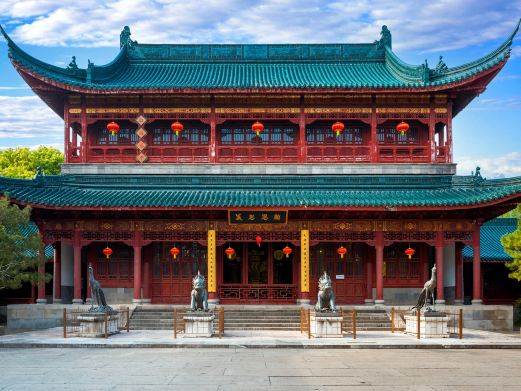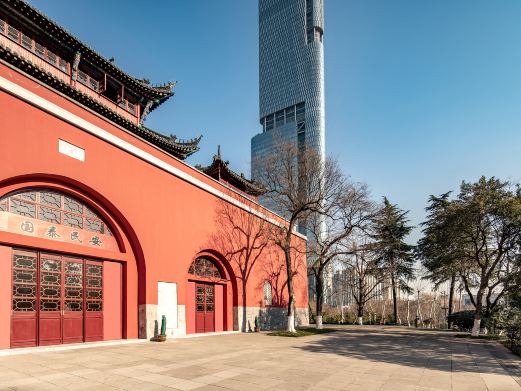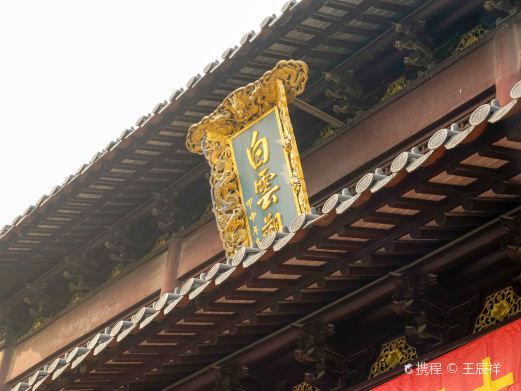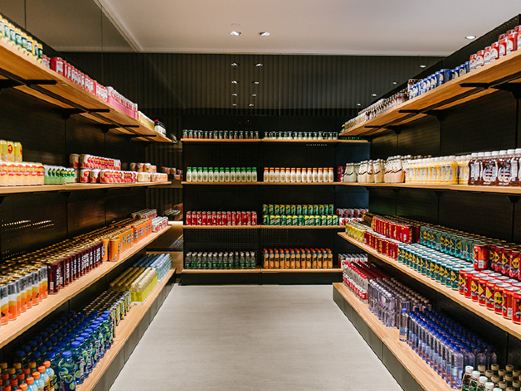Linwu Cave is located on the east side of West Mountain Island in Taihu Lake, which is acclaimed as the ‘Ninth Cavern Heaven’ by Taoism and is said to be the first stop of Xu Xiake’s travels. Unlike typical karst caves, the cave features Taihu stones rather than stalactites. Outside the cave lies the Mei Garden, which serves as the main venue for the Taihu Meihua Festival from February to March, attracting countless visitors with its vast plum blossoms.
During national holidays like the National Day, the Taihu Grand Bridge connecting West Mountain and the mainland can become congested with self-driven vehicles, so it is advisable to visit on weekdays if possible. Most public buses stop at Mei Garden, Baoshan Temple, and Linwu Cave, with these three stops being very close to each other, and it is recommended to alight at Linwu Cave. During the Meihua Festival, as the bus passes by, the sight of plum blossoms peeking over the walls already evokes a sense of intimacy and anticipation. Entering the south side of the scenic area through the yellow temple-like main gate, the fragrance of a few plum blossoms at the entrance is overwhelming. It is best to head straight to Linwu Cave early, as the cave can become unbearably crowded once large tour groups arrive. There are some cliff inscriptions at the mouth of the cave, and the interior is warm in winter and cool in summer, with six interlocking cavern halls. The entrance is the Rain Cave, where water droplets occasionally fall from above. Next, one arrives at the larger Ge Fan Cave, where Taihu stones growing on the ground form a labyrinth, with many narrow passages only allowing one person to pass at a time. Pay attention to the red arrows on the stones to find your way, and along the path, one can see stone beds, stone tables and chairs, and other pictographic stones, as well as the Ziyin Spring, which is said to be connected to Taihu Lake. Crossing a few stones over water leads to the Tian Hou Bie Gong Cave, where there are some water features to view. Then one reaches the Jin Long Cave, with many stone flowers and columns in a fissure on the cave ceiling, resembling a dragon. This cave has yielded a golden dragon used in Taoist dragon-casting ceremonies, with the original piece on display at the Suzhou Museum. Following a 180-degree turn, one passes through Bing Cave and finally arrives at Yanggu Cave, a relatively spacious ‘hall’. The exit path from Linwu Cave is narrow and the cave ceiling is low, so be careful not to hit your head; there are some stone flowers to see on the cave ceiling. After exiting the cave, at the fork in the road, the path pointing to Dao Yin Garden will lead you back to the entrance of Linwu Cave, and a small area of cliff inscriptions next to the sign is ‘Dao Yin Garden’. Taking the path pointing to the summit’s Jia Fu Pavilion and climbing to the top takes about 20 minutes, with plum blossoms planted along both sides of the mountain path. Jia Fu Pavilion (Sanqing Pavilion) enshrines Taoist deities, and the large bell on the third floor can be rung for free. The outer corridor is a good viewing point, offering a distant view of Taihu Lake and a panoramic view of the Mei Garden’s sea of flowers, which looks like a light gauze and mist shrouded at the foot of the mountain, very spectacular. The Biluo Pavilion to the east of Jia Fu Pavilion also offers a good view. Returning to the entrance of Linwu Cave and heading north past the Tai Sui Hall, one arrives at Mei Garden (Linwu Mei Sea). Mei Garden has many plum blossoms, with red, white, and green plums blooming competitively, making it perfect for photography. If not visiting during the Meihua Festival, just visiting Linwu Cave and Jia Fu Pavilion is sufficient, as Mei Garden is essentially a well-landscaped park suitable for a leisurely stroll.Opening hours: Open all year round from 08:00 to 16:30.

Preferential policies:

Children: Free for those under 6 years old (inclusive) or with a height of 1.4 meters (inclusive) or below; half price for those aged 6 years old (exclusive) to 18 years old (inclusive).

The elderly: Free for those aged 70 years old (inclusive) or above; half price for those aged 60 years old (inclusive) to 70 years old (exclusive).









